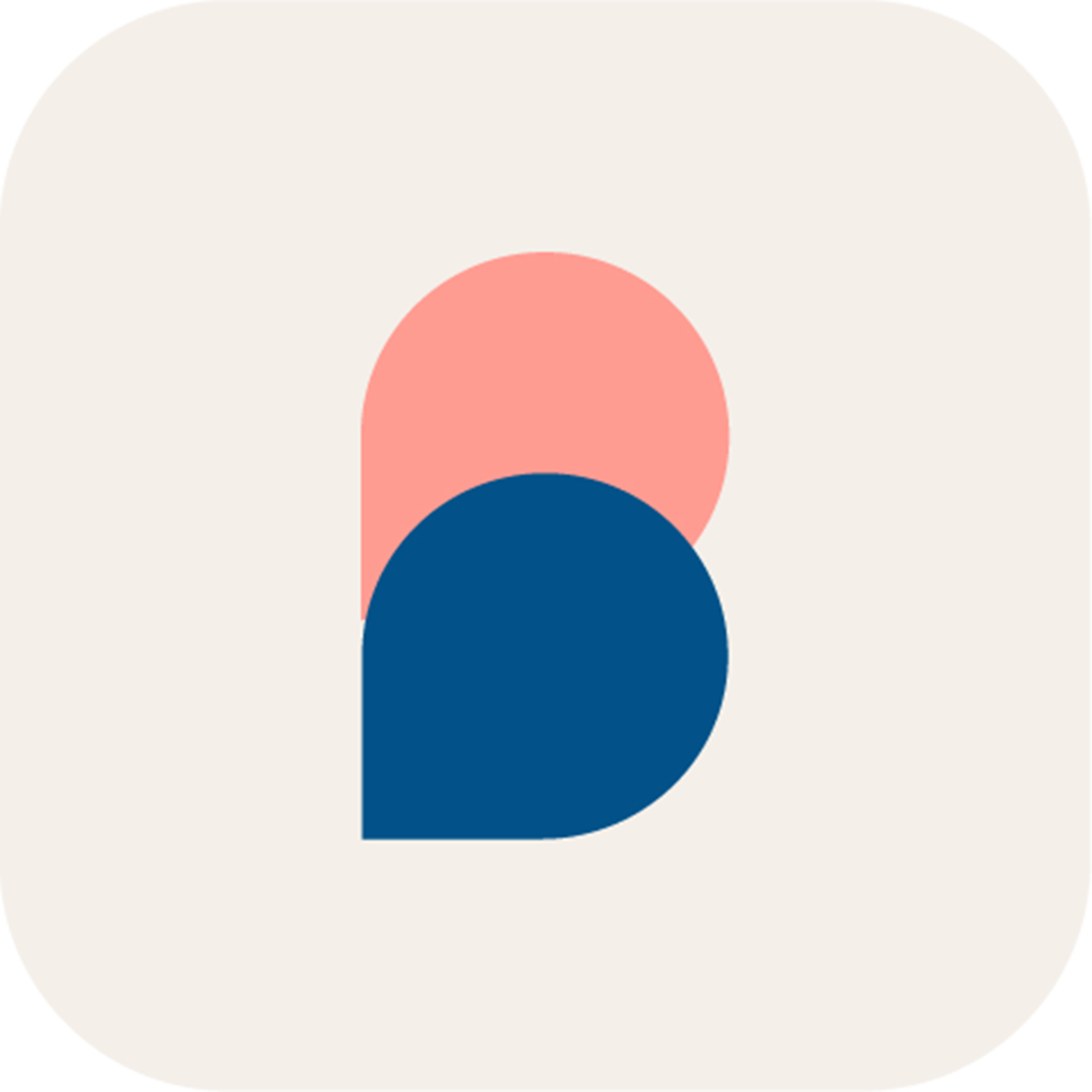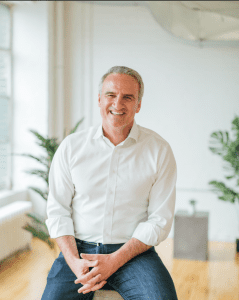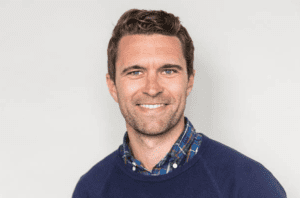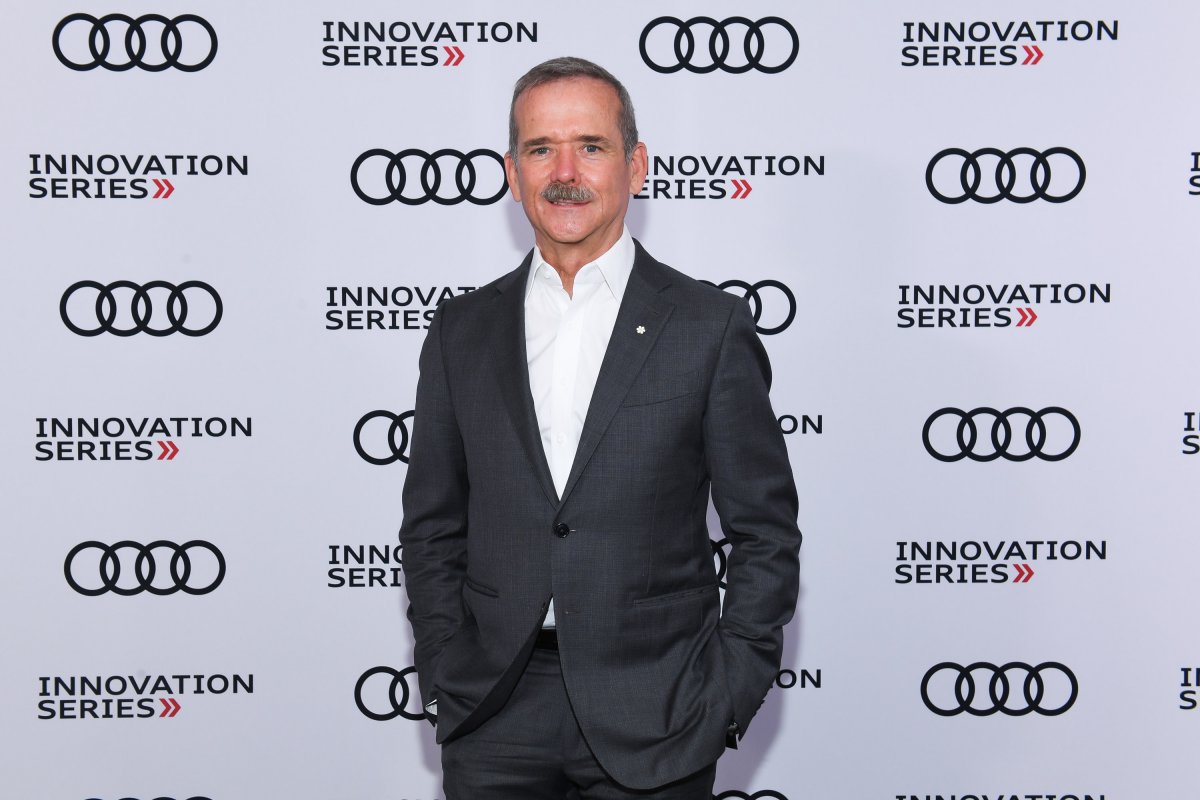[vc_row][vc_column][vc_column_text]Babbly is an innovative app that helps parents track their baby’s developmental progress based on—you guessed it—babbling.
When co-founder and CEO of Babbly, Maryam Nabavi, realized that her son’s language skills were not developing as expected, she sought help from professional speech and language pathologists. In doing so, Nabavi went against the common advice of “waiting and monitoring” a baby’s development.
Nabavi made the right call—after a few months, her son was able to start forming words and putting sentences together.
Making this decision to seek extra help for a baby’s development can be hard for a parent: Should I play the waiting game or be proactive? How do I know when to be proactive? Is my baby developing at a normal rate?
Having experienced all that goes into making that decision, Nabavi wanted to make the process easier for all parents. Thus, Babbly was born.
“I realized how broken the process is, in terms of tracking anything that doesn’t have to do with your baby’s height or weight,” said Nabavi. “Those are easy; your doctor usually takes the measurements and you walk away with a nice chart. But anything other than those, usually becomes more of a gray zone.”
Before a baby’s first word is spoken, there’s a period of time filled with babbles that seem indecipherable. However, those seemingly simple noises can have more insight than you think.
After many experiments and hours monitoring baby sounds, Nabavi and the Babbly team were able to create an AI powered platform that utilizes a baby’s babbling to track their developmental progress.
Backed by a scientific advisory team, Babbly offers parents the opportunity to know more about their baby than ever before. For this week’s Start-Up Spotlight, Bay Street Bull spoke with Maryam Nabavi, co-founder and CEO of Babbly, about easing the anxieties of parents, the science behind baby babbles and what those babbles might mean.
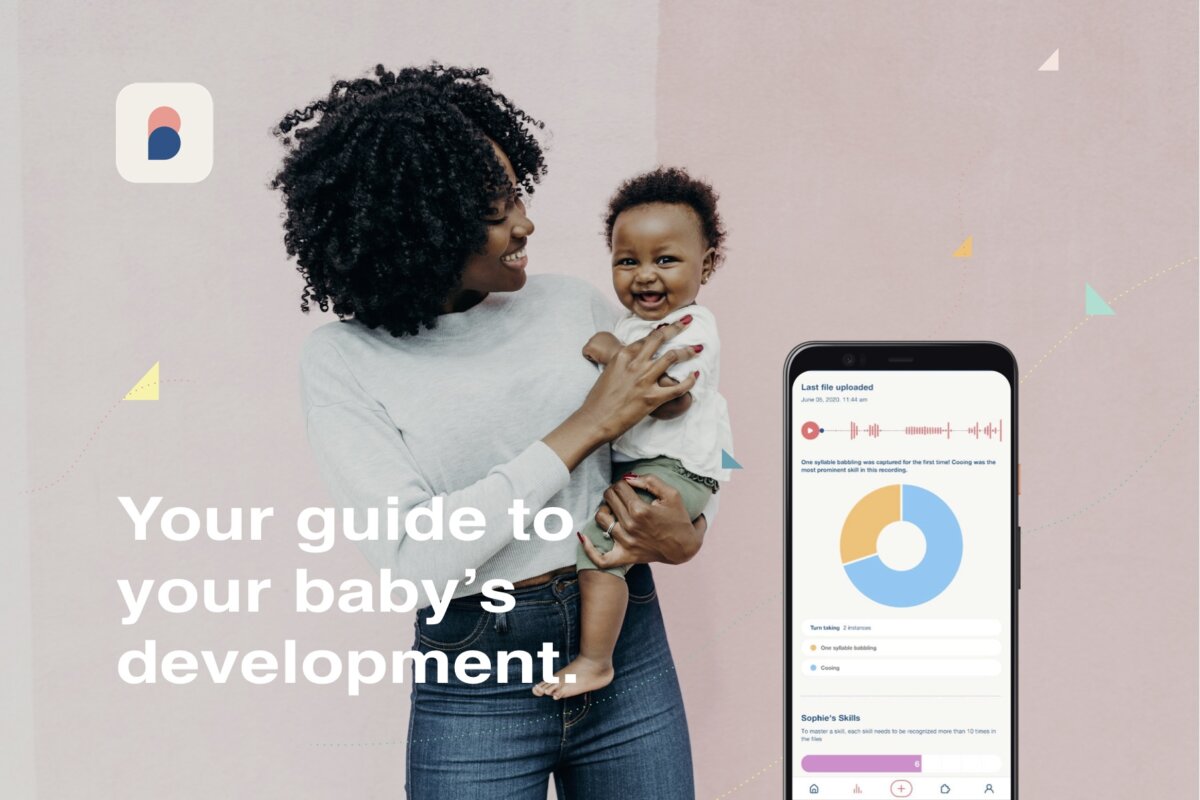

Babbly is an AI-powered platform that helps parents track their baby’s development using the baby’s voice as a proxy for brain development.
That’s incredible. And how did the conception for Babbly come about?
We started working on this following my experience as a mom and knowing that my son was having his language delayed. When he was about two years old, I realized he didn’t have his first words, which usually happens way earlier. And I realized how broken the process is, in terms of tracking anything that doesn’t have to do with your baby’s height or weight. Those are easy; your doctor usually takes the measurements and you walk away with a nice chart.
But anything other than those, usually becomes more of a gray zone. There are no real benchmarks to measure against. We realized that it’s a problem that a lot of families have, whether or not they’re worried about their baby. There’s no real way for them to quantify how their child is developing and if they’re developing at the right pace.
And with the type technology that Babbly uses, how is that even created? What was the process of making a system that’s able to take an audio recording and be able to kind of form a concise data point off it?
It wasn’t easy, because this is not a data set that exists like adult language, for instance. There’s a ton of data that you can extract from just off of the Internet. But in this case, we had to acquire our own. So we did a bunch of things, experiments. We had a hardware which was basically a microphone in people’s homes, and it was recording their baby’s voice for a week continuously. We scraped a bunch of online platforms like YouTube, Instagram, Facebook, where baby sounds existed. We also had one academic dataset that was open for research purposes, and we use that to train our initial minimum viable product.
Did anything surprise you in learning about all that and doing the deep dive into that data? Were there any surprising findings for you regarding baby babbling?
Yeah, a couple of. One was in the very beginning, we weren’t sure how this is going to work out with different languages and dialects. And based on literature and working with our scientific advisory, we realized that babbling is actually much easier to scale from a technology standpoint than language based technology because it’s universal. Kids in Mandarin speaking homes go through the exact same patterns of babbling as English speaking babies. So, that was kind of cool because we didn’t know before.
But from the data itself, we realized how much more vocal babies get when their parents prompt them by speaking with a high-pitched tone, or what’s normally called ‘baby talk’. So if you leave a six to nine month old in the crib and let them just be by themselves, depending on the time of the day and their mood, they might start to make babbling sounds. But, if you have an adult face to face with them and they start talking to them in ‘baby talk’—and more importantly, if the adult pauses for at least five seconds—after doing that for a period of time, you will start to see the child interacting more and saying more.
The pause has a real effect on them?
Yeah. They totally start to understand, “Okay, it’s my turn” and they’ll start to have a conversation.
That’s really, really cool. What do you hope Babbly does for today’s parents?
To be honest, the biggest hope for me is for them to walk away with either less anxiety than when they first came into the experience, or for instance, if they were worried if their child was meeting their milestones then they walk away feeling like, “OK, yes, my child is meeting their milestones.” Or if the child does not, at least they feel like they’re on the path to help their child.
And this is where a lot of parents get lost or fall through the cracks, because you go to your doctor’s appointment and let’s say it’s a 12 month checkup and you tell your doctor that, “OK. I’m worried about my baby’s speech.” It’s a 20 minute appointment. You have to talk about a million other things, including vaccination and all the other stuff. Very often your doctor will tell you, “OK, we’ll look into it, keep monitoring up until your next appointment.” And in that time, you find a lot of parents Googling their questions, going to Facebook groups trying to compare their child with others. There’s no real path in front of them to say, “OK, don’t worry. Here are a bunch of things you can do to help your child in the meantime.” So that’s what I’m hoping—for parents to get a place for a source of truth and also a community where they can get support.
And speaking of community and what you want to do for parents, have you had any favourite kind of standout testimonial or story from a parent about what Babbly has done for them?
A couple of memories—good and bad. One is when you have a parent who comes to you and says, “I think my baby is just screaming, can you guys help me? Take this video recording and tell me my child is not just screaming.” This is a real example, and after doing that [uploading the video] within the first 15 minutes of the test session, this mom saw all the skills that her baby had and that the baby was developmentally appropriate. She was like, “Wow, I’m feeling really proud of her for what she’s doing. I thought she was just screaming.” So, there are good memories like that.
And then there are moments when a parent comes to us and says, “You know, I have a two year old who’s not saying anything. I’m not worried because so-and-so told me that he’s still young.” But, you know they’re worried because otherwise they wouldn’t come and test it. And when they see the results, there’s that moment when they pause and they’re like, “I guess my child is not meeting their milestones.” In that case, I was on the call and I just reassured her that I’ve walked down that process, and there’s a ton that we can do to help. With that particular mom, I’ve actually kept in touch. Fast forward three weeks after she started implementing our strategies and she said, “I’m seeing more interaction with my son. He’s looking at me more.” So it’s a moment of anxiety that turns into a happy story and hopefully she’ll see more results over time.[/vc_column_text][vc_raw_html]JTNDaWZyYW1lJTIwd2lkdGglM0QlMjI1NjAlMjIlMjBoZWlnaHQlM0QlMjIzMTUlMjIlMjBzcmMlM0QlMjJodHRwcyUzQSUyRiUyRnd3dy55b3V0dWJlLmNvbSUyRmVtYmVkJTJGUEpBdnNBeXByZmslMjIlMjBmcmFtZWJvcmRlciUzRCUyMjAlMjIlMjBhbGxvdyUzRCUyMmFjY2VsZXJvbWV0ZXIlM0IlMjBhdXRvcGxheSUzQiUyMGNsaXBib2FyZC13cml0ZSUzQiUyMGVuY3J5cHRlZC1tZWRpYSUzQiUyMGd5cm9zY29wZSUzQiUyMHBpY3R1cmUtaW4tcGljdHVyZSUyMiUyMGFsbG93ZnVsbHNjcmVlbiUzRSUzQyUyRmlmcmFtZSUzRQ==[/vc_raw_html][vc_column_text]Did you face any challenges bringing Babbly to life? Was there any pushback or people saying that it wasn’t possible?
Any entrepreneur will always have a million pushbacks. There was definitely skepticism in the beginning about two things. One was whether you guys can do this. Two, whether there’s a scientific basis behind this. Does babies babbling actually mean anything? Luckily we were working with a scientific advisory, so we didn’t we weren’t just making stuff up. Now they [skeptics] can see that we did it. Also the evidence is there from decades of research, that lacking a particular skill by nine months, for instance, can be correlated to neuro developmental disorders. If we can do clinical trials in the future and show the data and publish papers, of course it will help. But in the meantime, I think we’ve been able to come over that hump.
The other challenge is a lot of people will hear this and say, “OK, so this is for people who are extremely worried about their child or their child is really behind.” Whereas the best stories that we’ve seen are parents who wanted to be very proactive about their child’s development. When there were not necessarily any concerns, but they [parents] wanted to learn the best practices and get more out of playtime. Especially now with COVID-19, most parents are spending countless hours at home playing the same games with their children. Children do develop on their own—it’s not that they won’t develop if you play the same game over and over again—but you have a lot of control over the diversity of the vocabulary that your child learns, how complex their language is and how much they interact with adults that they don’t necessarily know. So, we are hoping that those kinds of parents interact with the product more and more and get their children who are by all accounts fine, to excel and prosper even more.
Kind of along the same lines, not necessarily challenges, but what was the biggest lesson you learned as an entrepreneur and starting a business?
A lot of people will say start a company based on a personal problem and passion because that helps you. But, I would say it has a double effect. It can also give you a blind spot because as a person who went through that process and that pain, you feel like you have the full picture of what the problem is and that you know better than others around you, whether it’s your team or you or your investors. Whereas realistically, even if you have gone through the entire end to end process, there are so many different perspectives of people who’ve had the same issues. For example, while I think that parents would use their smartphone or would be willing to have smart speakers listen to their baby 24/7, that may not be true for other parents. Right? Some parents will have security concerns or privacy concerns. So I would say the biggest lesson is realizing that I am one of the users, and my perspective is as good as any other parent who has gone through the same kind of pain.


That’s a good kind of thing to catch sooner rather than later, which was probably helpful in the long run. Do you have any advice for parents who have a young one at home while also trying to get a business off the ground?
I don’t know if you have any advice because I feel like I’m still in the weeds myself [laughs]. My son just went back to daycare, which has been life changing. I feel like having a child gives you a real perspective into your business—whether or not your business has anything to do with children or family tech [like Babbly]. I think it forces you to get out of your work area and move away from your screen, which is sometimes hard for us who get stuck doing one thing—sometimes it’s easier to have 16, 17 hour workdays than to constantly be interrupted. I’ve learned that it can be a pain, but you make it work. I’ll go for a walk or a bike ride with my son, and in the back of my mind, I’m still thinking about a work problem. It [being a parent] helps with creativity, especially now, because I feel like we don’t leave our homes. You’re in the same environment, working, cooking, doing everything. Those spontaneous water cooler conversations are gone, right? You wouldn’t just jump on his own call to talk about nothing. So, I feel like children help to create that kind of spontaneous creativity moments in your workday.
Where do you hope to see Babbly in five, 10 years?
We’ve had this vision since day one, where Babbly will expand to other areas of development, like gross motor, fine motor or even social skills. Right now, if parents give us a video and want information about their child’s eye contact and if the child is attentive, we engage a human. Or with speech language pathologists to look at the video and provide information about other things, right?
I’m not saying everything can be done with a machine. But hopefully in five, 10 years time, from millions of data sets that we collect, we’re better at predicting the children that are at risk or that should be referred to a therapist right now. We’re hoping that we can look more into areas where a child might be at risk, but is not necessarily non-verbal.
If you were to kind of sum up Babbly’s overall mission, what would you say it is?
Our mission is to make parents feel in control of their child’s development. And make them feel empowered with data driven decisions.
We see a huge shift in parenting, both parenting values and lifestyle between millennials and previous generations; and that’s just going to continue into Gen-Z and after. So, in the same way that we want to make decisions about our health—we are very data driven when it comes to making decisions about our nutrition or our body—we want parents to have the resources and tools to make decisions about their baby’s education and entertainment. And to help make decisions that are not just based on what a standardized checklist, which has been around since the 1960s, teaches them. These checklists will say at nine months, your child is supposed to do X, Y, Z, but we want parents to have true DNA data—DNA as a metaphor of their child’s unique skills—and be able to make the right decision, at the right time, for their child.
Was there anything that we haven’t spoken about that you’d like to add?
I think one thing I would add to the vision is that we want when we see Babbly as ubiquitous technology. The app is our go-to market strategy to acquire more users and data, because it’s really easy for parents to just upload a video that they already have on their phone. But in the future, we want this to be ubiquitous, meaning you don’t have to put the work in giving Babbly data. With integration in baby monitors and hardware and devices around the baby’s room, we can be the brain of the nursery. Basically, we hope to be ubiquitous in other devices around the family and in the nursery, so parents will get that information, proactively from us and they don’t have to necessarily update information all the time.[/vc_column_text][vc_separator color=”custom” style=”dotted” border_width=”3″ accent_color=”#c9998d”][/vc_column][/vc_row]


